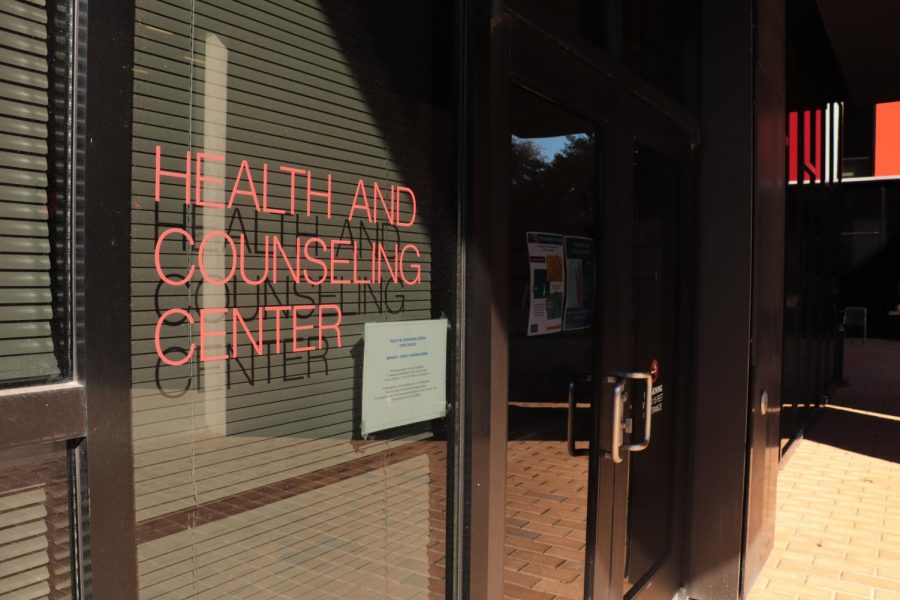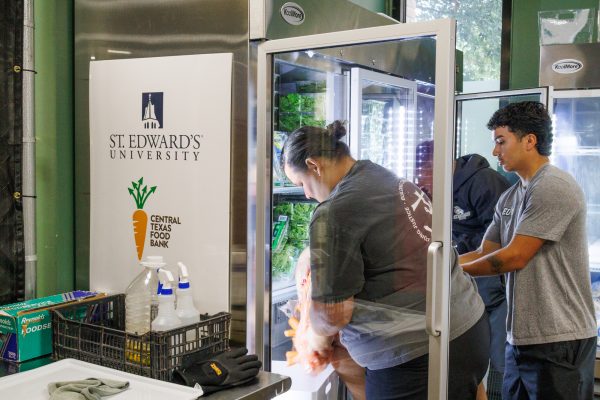Coronavirus makes its way to Texas, cities take steps to keep communities safe
The Health and Counseling Center advises against going into their office if students have flu-like symptoms. Instead, they should call the office to make an appointment.
On Feb. 28, the U.S. Centers for Disease Control and Prevention (CDC) confirmed 11 cases of coronavirus in San Antonio. According to San Antonio city officials, the risk of the virus spreading is low. Patients who have been diagnosed with coronavirus are currently in the Texas Center for Infectious Disease for treatment.
Rice University, located in Houston, has taken precautions by asking 17 individuals (consisting of students and faculty members) to self-quarantine after it was discovered that an employee who had traveled overseas was possibly exposed to coronavirus.
On Friday, the City of Austin canceled SXSW amid the coronavirus concerns.
“As recently as Wednesday, Austin Public Health stated that there’s no evidence that closing SXSW or any other gatherings will make the community safer. However, this situation evolved rapidly, and we honor and respect the City of Austin’s decision. We are committed to do our part to help protect our staff, attendees, and fellow Austinites,” according to the official SXSW website.
Texas Governor Greg Abbott has stated, “Texas is ready for the coronavirus.” Recently, health officials are keeping the community informed about the coronavirus. Texas officials are giving updates to and working closely with the CDC and the White House, and preparing for any outcome.
Director of the Health and Counseling Center, Vanessa Peña, cited the CDC’s guidelines on how students should protect themselves from the coronavirus:
- Wash your hands with soap and water. [For an alternative], use an alcohol-based hand sanitizer that contains at least 60% alcohol, and wash with soap and water as soon as you can.
- Cough or sneeze into your elbow or sleeve. When you use a tissue, throw it in the trash immediately.
- Avoid close contact with people who are sick.
- If you believe you may be sick, we suggest you strongly consider staying home.
In addition to providing advice on how to prevent the spread of the coronavirus, Peña also debunked some myths about the coronavirus.
“Face masks cannot protect someone from getting the coronavirus; however, if someone is sick with coronavirus, it can help them prevent spreading it to others,” Peña said.
Peña also mentioned other myths, such as hand dryers being able to the virus, and that packages from China are unsafe. She quickly debunked these as well. She added that there is currently no evidence to support that pets can carry the virus.
Moreover, Peña talked about St. Edward’s plans on helping students protect themselves from the coronavirus.
“We are also actively working on putting together a university protocol on what exact steps we will take if we have students presenting with symptoms at HCC and at the university at large,” she said.
Others, such as St. Edward’s Associate Dean of Arts and Humanities, professor Jena Heath, are keeping things light-hearted in these potentially trying times.
“My brother is going to visit during spring break, but he wrote to me asking if he should come,” Heath said. “I told him yes, but he told me to meet him at the airport with a bottle of alcohol and a hazmat suit.”
On Friday, the Dean of Students sent an email regarding the new procedure for students who might be experiencing symptoms of respiratory illness along with other important information. The email instructs students to call the Health and Counseling Center (HCC) first before entering the building so that they can determine what kind of medical care they require. The new procedure is created to prevent and limit the spread of the coronavirus.
Click here for more updates on the coronavirus.











